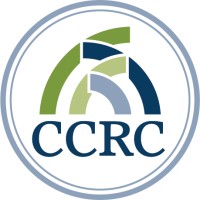Company Details
the-lebanese-center-for-policy-studies
26
3,194
921
lcps-lebanon.org
0
THE_8392005
In-progress

The Lebanese Center for Policy Studies (LCPS) Company CyberSecurity Posture
lcps-lebanon.orgFounded in 1989, the Lebanese Center for Policy Studies is a Beirut-based independent, non-partisan think-tank whose mission is to produce and advocate policies that improve good governance in fields such as oil and gas, economic development, public finance and decentralization. LCPS aims to produce independent, high-quality research relevant to policymaking and to promote active reform through advocacy and raising public awareness.
Company Details
the-lebanese-center-for-policy-studies
26
3,194
921
lcps-lebanon.org
0
THE_8392005
In-progress
Between 700 and 749

 LCPS Global Score (TPRM)
LCPS Global Score (TPRM)XXXX



No incidents recorded for The Lebanese Center for Policy Studies (LCPS) in 2025.
No incidents recorded for The Lebanese Center for Policy Studies (LCPS) in 2025.
No incidents recorded for The Lebanese Center for Policy Studies (LCPS) in 2025.
LCPS cyber incidents detection timeline including parent company and subsidiaries

Founded in 1989, the Lebanese Center for Policy Studies is a Beirut-based independent, non-partisan think-tank whose mission is to produce and advocate policies that improve good governance in fields such as oil and gas, economic development, public finance and decentralization. LCPS aims to produce independent, high-quality research relevant to policymaking and to promote active reform through advocacy and raising public awareness.


CRAE promotes the human rights of children. It does so by: lobbying those who hold power; undertaking strategic litigation; carrying out research; empowering and mobilising others, including children, to take action; and providing legal information and raising awareness in relation to children’s ri

Dobson DaVanzo & Associates, LLC is a health care consulting firm based in the Washington. D.C. metropolitan area. The work of our principals has influenced numerous public policy decisions, and appears in legislation and regulation. Our research helps payers and providers develop, implement, and ev

We create value for society from government’s most complex commercial interests. Combining the best of public and private sector expertise, UK Government Investments is government’s centre of expertise for corporate governance and corporate finance. We work with both private sector and the wider p

Changing Georgia Policy, Changing Georgians’ Lives – Since 1991 The Georgia Public Policy Foundation is a 501(c)(3) non-profit, nonpartisan research institute. Our mission is to improve the lives of Georgians through public policies that enhance economic opportunity and freedom. We believe

As a statewide non-profit organization, Texans Care for Children conducts research and engages communities to identify ways that state policies should change to ensure Texas kids and families succeed. We then work with legislators, state officials, partners, the media, and everyday Texans to build s

Child Care Resource Center (CCRC) assists close to 50,000 parents, children, and child care providers each month in Northern Los Angeles County and the entirety of San Bernardino County serving a total area of 22,500 square miles. Since 1976, CCRC has been managing programs to assist with issues s
.png)
With the release of the annual rankings of think tanks around the world on January 31,the Middle East Institute will host a panel to discuss...
The eruption of conflict between the Syrian regime and the armed opposition exacerbated the political and sectarian divisions within the...

Explore insights on cybersecurity incidents, risk posture, and Rankiteo's assessments.
The official website of The Lebanese Center for Policy Studies (LCPS) is http://www.lcps-lebanon.org.
According to Rankiteo, The Lebanese Center for Policy Studies (LCPS)’s AI-generated cybersecurity score is 743, reflecting their Moderate security posture.
According to Rankiteo, The Lebanese Center for Policy Studies (LCPS) currently holds 0 security badges, indicating that no recognized compliance certifications are currently verified for the organization.
According to Rankiteo, The Lebanese Center for Policy Studies (LCPS) is not certified under SOC 2 Type 1.
According to Rankiteo, The Lebanese Center for Policy Studies (LCPS) does not hold a SOC 2 Type 2 certification.
According to Rankiteo, The Lebanese Center for Policy Studies (LCPS) is not listed as GDPR compliant.
According to Rankiteo, The Lebanese Center for Policy Studies (LCPS) does not currently maintain PCI DSS compliance.
According to Rankiteo, The Lebanese Center for Policy Studies (LCPS) is not compliant with HIPAA regulations.
According to Rankiteo,The Lebanese Center for Policy Studies (LCPS) is not certified under ISO 27001, indicating the absence of a formally recognized information security management framework.
The Lebanese Center for Policy Studies (LCPS) operates primarily in the Public Policy Offices industry.
The Lebanese Center for Policy Studies (LCPS) employs approximately 26 people worldwide.
The Lebanese Center for Policy Studies (LCPS) presently has no subsidiaries across any sectors.
The Lebanese Center for Policy Studies (LCPS)’s official LinkedIn profile has approximately 3,194 followers.
The Lebanese Center for Policy Studies (LCPS) is classified under the NAICS code 921, which corresponds to Executive, Legislative, and Other General Government Support.
No, The Lebanese Center for Policy Studies (LCPS) does not have a profile on Crunchbase.
Yes, The Lebanese Center for Policy Studies (LCPS) maintains an official LinkedIn profile, which is actively utilized for branding and talent engagement, which can be accessed here: https://www.linkedin.com/company/the-lebanese-center-for-policy-studies.
As of November 27, 2025, Rankiteo reports that The Lebanese Center for Policy Studies (LCPS) has not experienced any cybersecurity incidents.
The Lebanese Center for Policy Studies (LCPS) has an estimated 1,025 peer or competitor companies worldwide.
Total Incidents: According to Rankiteo, The Lebanese Center for Policy Studies (LCPS) has faced 0 incidents in the past.
Incident Types: The types of cybersecurity incidents that have occurred include .
.png)
Angular is a development platform for building mobile and desktop web applications using TypeScript/JavaScript and other languages. Prior to versions 19.2.16, 20.3.14, and 21.0.1, there is a XSRF token leakage via protocol-relative URLs in angular HTTP clients. The vulnerability is a Credential Leak by App Logic that leads to the unauthorized disclosure of the Cross-Site Request Forgery (XSRF) token to an attacker-controlled domain. Angular's HttpClient has a built-in XSRF protection mechanism that works by checking if a request URL starts with a protocol (http:// or https://) to determine if it is cross-origin. If the URL starts with protocol-relative URL (//), it is incorrectly treated as a same-origin request, and the XSRF token is automatically added to the X-XSRF-TOKEN header. This issue has been patched in versions 19.2.16, 20.3.14, and 21.0.1. A workaround for this issue involves avoiding using protocol-relative URLs (URLs starting with //) in HttpClient requests. All backend communication URLs should be hardcoded as relative paths (starting with a single /) or fully qualified, trusted absolute URLs.
Forge (also called `node-forge`) is a native implementation of Transport Layer Security in JavaScript. An Uncontrolled Recursion vulnerability in node-forge versions 1.3.1 and below enables remote, unauthenticated attackers to craft deep ASN.1 structures that trigger unbounded recursive parsing. This leads to a Denial-of-Service (DoS) via stack exhaustion when parsing untrusted DER inputs. This issue has been patched in version 1.3.2.
Forge (also called `node-forge`) is a native implementation of Transport Layer Security in JavaScript. An Integer Overflow vulnerability in node-forge versions 1.3.1 and below enables remote, unauthenticated attackers to craft ASN.1 structures containing OIDs with oversized arcs. These arcs may be decoded as smaller, trusted OIDs due to 32-bit bitwise truncation, enabling the bypass of downstream OID-based security decisions. This issue has been patched in version 1.3.2.
Suricata is a network IDS, IPS and NSM engine developed by the OISF (Open Information Security Foundation) and the Suricata community. Prior to versions 7.0.13 and 8.0.2, working with large buffers in Lua scripts can lead to a stack overflow. Users of Lua rules and output scripts may be affected when working with large buffers. This includes a rule passing a large buffer to a Lua script. This issue has been patched in versions 7.0.13 and 8.0.2. A workaround for this issue involves disabling Lua rules and output scripts, or making sure limits, such as stream.depth.reassembly and HTTP response body limits (response-body-limit), are set to less than half the stack size.
Suricata is a network IDS, IPS and NSM engine developed by the OISF (Open Information Security Foundation) and the Suricata community. In versions from 8.0.0 to before 8.0.2, a NULL dereference can occur when the entropy keyword is used in conjunction with base64_data. This issue has been patched in version 8.0.2. A workaround involves disabling rules that use entropy in conjunction with base64_data.

Get company history
















Every week, Rankiteo analyzes billions of signals to give organizations a sharper, faster view of emerging risks. With deeper, more actionable intelligence at their fingertips, security teams can outpace threat actors, respond instantly to Zero-Day attacks, and dramatically shrink their risk exposure window.
Identify exposed access points, detect misconfigured SSL certificates, and uncover vulnerabilities across the network infrastructure.
Gain visibility into the software components used within an organization to detect vulnerabilities, manage risk, and ensure supply chain security.
Monitor and manage all IT assets and their configurations to ensure accurate, real-time visibility across the company's technology environment.
Leverage real-time insights on active threats, malware campaigns, and emerging vulnerabilities to proactively defend against evolving cyberattacks.




